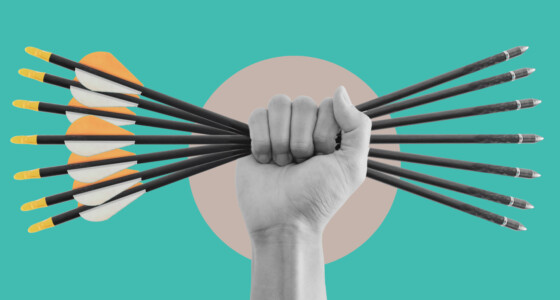

Ross Cameron, the founder of one of the largest online communities of active traders and investors, Warrior Trading, has a tight daily trading window. He found that he was more productive between 9:30 and 11:30 a.m. Timothy Sykes, recommends taking advantage of social platforms and blogs. What else can you learn from people who’ve made it?
Here is how to become a successful day trader — quick tips for you to introduce into your trading right away!
1. Have a trading strategy
The first thing you need to compete with the pros is to have a solid trading strategy. And even when it gets stressful and you want to escape from a bad trade, you need to stick to this strategy (as long as it has clearly defined exit rules, of course). It’s the only way to compete with smart and talented people in this field. Approach every trading decision by asking yourself first, “does it comply with my strategy?”
2. Use technology purposefully
The beautiful thing about trading in the 21st century is the range of technological tools available to everyone. What was once used for a competitive advantage by a selected few is now at your fingertips.
Research the latest tools in the market — charting software, data tracking, trade automation, news notifications — anything that can streamline your trading setup and help you react as quickly as possible. But make sure to only use the tools you understand! Otherwise, you’ll do more damage than good.
3. Protect your funds
When you’re not sure whether a trade is worth the risk, think about whether it’s worth at all. There will always be another opportunity to enter a trade, so don’t be afraid to miss out on one. It’s more important to look at the bigger picture than to worry about one trade that got away.
Successful traders know that it’s the perfect trades that make a difference. And because not every trade will be perfect, it’s not worth risking your funds for average setups.

4. Always place a stop-loss
What if you step away from your monitor and the market suddenly throws you a curveball? Is there a way to prepare for the unexpected? Of course! That’s what stop-losses are for. Even the smartest, seemingly sure-fire trades need one.
In case you’re not already familiar with this type of order, a stop-loss exits a trade automatically when the market goes against you. When the price of an asset reaches a certain level, it triggers the order.
5. Trade with what you can afford to lose
Thinking about what you could afford to lose might be uncomfortable. But this rule is actually not as concerned with optimal trade sizes — it’s meant to help keep your emotions at bay.
The real reason why you shouldn’t risk funds you can’t afford to lose is that it will make you passionate and illogical. These two states of mind are probably the worst mix for a trader. Therefore, don’t harm your own cause by placing, for instance, your next mortgage payment on the line.
6. Have rules for active trading hours

Remember what Ross Cameron said about his trading hours? For him, it’s two hours. For you, it can be longer but not the entire day because you can’t be “in the zone” the entire day.
Set yourself a hard limit on when you should stop trading for the day. It can be 2, 4, 6, or 8 hours depending on how quickly you lose focus and start stressing about your trades. Shortly before your trading day is about to end, close your positions and calmly walk away.
7. Adopt the mindset of a lifelong learner
Trading is a path of constant learning and improvement. You can’t possibly know everything about the markets, but you should try your hardest. And when you think you know enough, continue learning because a lot will have already changed by then.








